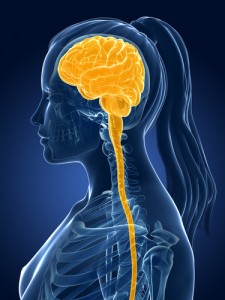Multiple Sclerosis Study Explores Walking, Cycling, Yoga Effects on Cognition
Written by |

 A new study suggests that different types of physical activity might help the mental processes of people with multiple sclerosis. The research comes from the University of Illinois and the State University of New York at Buffalo, and appeared in the February 6th issue of the Journal of Clinical and Experimental Neuropsychology.
A new study suggests that different types of physical activity might help the mental processes of people with multiple sclerosis. The research comes from the University of Illinois and the State University of New York at Buffalo, and appeared in the February 6th issue of the Journal of Clinical and Experimental Neuropsychology.
Problems with mental processes are common in multiple sclerosis, but often go untreated and unrecognized. According to the report, “cognitive dysfunction in MS is associated with negative health consequences, including depression, reductions in quality of life, and loss of independence, as well as the loss of driving ability.”
Exercise is a known brain-booster, and may increase protection of central nervous system cells. It increases blood flow and could mediate other effects that can help with cognition. However, only three studies have examined the effects of exercise on cognition in multiple sclerosis to date, and results have been conflicting.
The researchers, led by Brian Sandroff of the Department of Kinesiology and Community Health and the University of Illinois, studied the effects of three different types of physical activity in people with relapsing-remitting multiple sclerosis who did not have identified problems with mental processing speed. The exercises studied included 20 minutes of moderate-intensity treadmill walking, moderate-intensity cycle ergometer activity, and guided yoga — all compared to quiet rest with no exercise. The scientists used a standard measurement of mental ability both before and after the activities, known as a modified-flanker task.
All three exercises had a positive effect on improving scores in the flanker task, although treadmill walking was the most effective form of exercise for improving scores.
[adrotate group=”4″]
In their study report, the researchers concluded, “The present results support treadmill walking as the modality of exercise that might exert the largest beneficial effects on executive control in persons with relapsing-remitting MS without impaired cognitive processing speed. This represents an exciting starting point for delineating the appropriate exercise stimulus (i.e., modality and intensity) for inclusion in a subsequent longitudinal exercise training intervention for improving cognitive performance in this population.”
This study reinforces the idea that exercise may be a viable prescription for people with multiple sclerosis, with improved cognition as a possible benefit. In addition, this study may be a starting point for understanding which kinds of exercise, and with what intensity, may be most beneficial to people with multiple sclerosis.
The authors did note, however, that this study only focused on people with relapsing and remitting multiple sclerosis who only had mild to moderate cognitive problems. Further studies in groups of people with more diverse multiple sclerosis symptoms are necessary.


